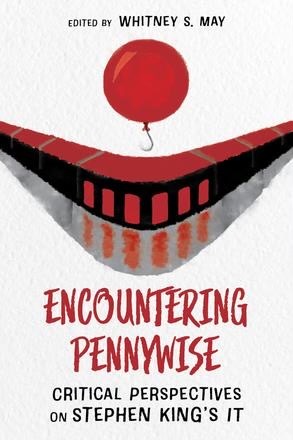American studies students at UT-Austin are taking horror by the horns
July 2, 2022
Editor’s note: This story first appeared in the June 27, 2022 flipbook.
Whitney May said her interest in horror came together in 2019 after her own experience with the occult. After being gifted with a supposedly haunted clown doll that she kept perched in her office, her house was struck by lightning — right next to where the doll was kept.
“With the weirdness of the bolt being right where the doll was, I had to really question whether or not I believed in haunted clowns,” May said.
As a graduate student, May explored her interest in gothic literature with a dissertation on doppelgängers. Now, as an American studies doctoral student at UT, she said she shifted her focus to an even creepier phenomenon: haunted clowns. May said her work reflects a growing interest in horror within the American studies department.
“Right after I finished the master’s thesis, I was in doppelgänger mode, but doppelgängers are just like clowns,” May said. “You could categorize a clown as a doppelgänger because it is something that looks just human enough to make you trust it, but you also still feel kind of anxious about it.”
This chilling phenomenon effectively coincided with May’s newest venture, a book entitled “Encountering Pennywise: Critical Perspectives on Stephen King’s IT.” The book will be released this October and will consist of essays written by various academics, all about the impacts clowns have on pop culture.
“It started as a weird, oddball project,” May said. “It became my pandemic project. … I am pleased with how it came together because it was such a big project in such a weird time.”
May’s work is just one example of how horror fits in the broad field of American studies. Classes taught in the department include “Hauntings in American Culture” instructed by Holly Genovese, another doctoral student in the Department of American Studies.
“A lot of horror and ghost stories in the U.S. are reflective of histories, trauma, violence, theft, loss and slavery in the country.” Genovese said. “(Ghost Stories) became a way to talk about U.S. history and literature in a way that’s interesting and allows us to grapple with difficult things.”
Graduate Reyna Ledet, one of Genovese’s former students, wrote “Possession, Feminism and Bodily Autonomy in Horror,” which explores how demonic possession communicates the theme of patriarchy in the horror film “Jennifer’s Body” and the novel “Mexican Gothic” by Silvia Moreno-Garcia.
“What (my essay) really reinforced is that horror can get to the heart of people’s anxieties,” Ledet said.
Furthermore, in addition to the themes of patriarchy in the U.S. that are explored in the essay, Ledet said discussions about reproductive rights in America inspired the essay, especially in relating the possession of the females characters to male figures in the government creating legislation that control women’s bodies through preventing access to safe abortions and other reproductive healthcare.
“Bodily autonomy was in the back of my mind.” Ledet said. “Both ‘Beloved’ (by Toni Morrison) and ‘Mexican Gothic’ talked about how in American history, possession over these women’s bodies could be quite literal.”
As May, Genovese and other American studies students connect staples in the horror genre like clowns, ghosts and possession to racism and sexuality, they said they tie together literature and film with hard-pressing past and present social issues in America.
“The divergent world of American studies creates an ‘island of misfit toys,’” May said. “American studies doesn’t quite fit cleanly in another discipline. You can come in and look at things critically that other disciplines don’t think of as ‘proper’ sources of intellectual critique.”












